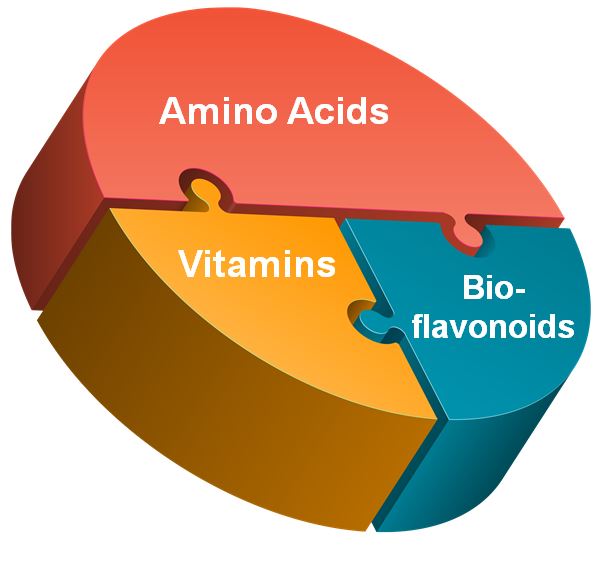
The Annals of Internal Medicine reports in a 2013 study, that after reviewing the results of 3 clinical trials of multivitamin use and 24 trials of single vitamins randomly assigned to more than 400,000 participants, there was no clear evidence of beneficial effect of vitamin supplementation on all causes of mortality, cardiovascular disease, cognitive decline or cancer.
The findings concluded most vitamin supplementation did not prevent chronic disease or death. Further, it was noted that given these results, vitamin use was not justified. (1)
Since that 2013 study, new research has shown that for vitamins to be fully effective they must be supported by co-factors to enable vitamins to perform their jobs properly.
In the use of vitamin supplementation, the co-factors required are specific amino acids and bioflavonoids. These co-factors must be present for vitamins to work effectively and deliver substantial health benefits. (2)
The bioflavonoid hesperidin, derived from citrus peel, is one of the complementary co-factors of vitamin C. Two essential amino acid co-factors include L-Lysine and L-Threonine.
Foods and supplements rich in amino acids, bioflavonoids and vitamins can have a beneficial effect on health, modulating the immune system and defending cellular health. (3)
When considering vitamin supplementation, read the label to ensure the vitamin is supported by its amino acid and bioflavonoid co-factors for full effect. If the vitamin is not supported, consider co-factor supplementation to maximize health benefits.
References:
- Annals of Internal Medicine 2013 American College of Physicians, Page 850
- Prescriptions for Nutritional Healing, James Balch, MD, “Elements of Health” Page 34
- Antioxidants (Basil) 2020 Aug; 9(8) 742, PMC 7465267; PMID 32823497




